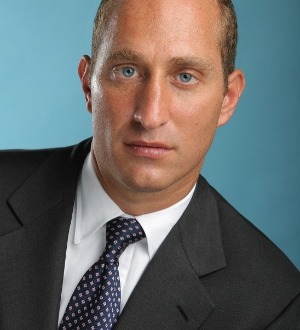I never had an adult mentor. At the same time, I have been able to learn from a few of the world’s greatest leaders. I have been able to witness those who were put on this earth to handle the world’s most significant problems and view a play by play of how they worked, failed, and succeeded. Ever since I was a young man, books have served as my teachers — and I admit that after college, it was a rare exception for me to pick up a fiction book in my free time when the biographies of the greats were waiting for me on the shelves.
Year after year, long before electric gadgets, I would carry enormous tomes onto the beach or to the park and get lost in history. Part of my reason for choosing biographies was that I always needed to feel as though I was doing something meaningful in life. And, of course, I also really enjoyed learning about the lives of these men and women. I always knew that what I was reading what teaching me how to become a better leader, boss, and attorney.
Criteria for Choosing the Book
As a workaholic with very limited time who made the most of his free time and vacations reading, I had strict criteria for choosing my books.
First, the book usually had to be referred by someone I respected and had a proven record in history. Second, most of these books averaged 600 to over a thousand pages. Finding out if the text you choose is the best on the subject before you put in the time is extremely important. The leading biography for each successful person never was hard to find when the book store, the internet, bestseller lists, and colleagues offer up suggestions. Third, I would only choose leaders that had been hugely successful, and it was a bonus if they had overcome great odds. Fourth, I needed to be interested in their story.
Ironically, I tend to be more interested in leaders from a few hundred years ago than those born in the same century—although Malcolm Gladwell (@Gladwell) helped me break this trend in Outliers: The Story of Success. He used lawyers in a book only 40 years older than I am to produce a fascinating study both on how the year a person is born affects their chances of success and how certain traits can cause some to become more successful than others.
For me, recollections of a recently deceased person do not have the sources, perspectives, or information necessary to be as helpful as texts on a long-studied historical figure. Moreover, very few modern leaders pass my test for determining if they are worthy of study. Of course, given more free time, I would be eager to study some of these people. I have broken this trend to read books on famous people who I have represented or litigated against to learn for the case and out of interest for the subject that had fascinated me—Vicky Ward (@VickyPJWard) did a terrific job studying Harry Macklowe and some of the other real estate players in Liar’s Ball.
The biographies I read transcend subjects. As I look for greatness and how a given person reached such a plateau, I do not confine myself to one period (although I have my favorites) or discipline (although I am partial towards business persons, world leaders, and revolutionaries). I learned so much from reading both Albert Einstein and Vince Lombardi; the lessons I learned in their books remain with me today. But I would humbly submit that the largest number of biographies I have consumed include my combined favorites: Winston Churchill, Alexander Hamilton, and Abraham Lincoln. All have made me a better leader and person — and I think about what they would do whenever I approach a challenging situation.
Some Tips on Becoming A Better Leader By Reading Biographies
Learn from the Leaders In Action
During each book, I would challenge myself to see how I would handle the same situation. I would keep a hotel’s small pad of paper and pen or, if I was at home, a few of my own writing materials in my bag. As I read, I would take notes and later use some of the ideas that the greats implemented in my life. By writing down the idea, I would remember it later. Sometimes I would not want the book to end, as some of them were so motivational that each time I picked up the book I had a new vigor for life and work—I had been inspired by my heroes, and was thus assisted in working harder and coming up with new ideas.
Find Comfort and Learn that You Can Overcome Anything
During times that my life was not going so well, I would open one of these books for the reassurance that the greats had it worse than I did—Winston Churchill had won a war for his country and then lost a subsequent local election to office. He did not have the resources to take on Germany during World War II and was obligated to either convince Roosevelt and the Americans to join the war or surrender — all the while keeping the morale of the country strong.
The examples are countless.
At the beginning of the American Revolution, after the English established themselves on Staten Island, George Washington’s ill-prepared soldiers lost every battle they fought and faced certain defeat. The American revolution almost came to an early end before heading into New Jersey.
The ambitious Alexander Hamilton had been discovered paying a prostitute’s husband to have relations with her husband’s wife.
Lincoln suffered from severe depression and personal hardships including the loss of his three-year-old son, the loss of his mother at a young age, an abusive father, the death of his soon-to-be fiancé. He then lost a significant number of elections and, after becoming President of the United States, caused the commencement of the Civil War. But the most fascinating and educating read is how he dealt with the blows and challenges he received as a war-time president.
Learn from the Heroes
Despite their difference in years, all of these leaders had much in common and offered much to learn from.
Albert Einstein had many suits, but they were all the same color and design because he wanted one less decision to make each day.
Vince Lombardi taught me to strive to win and the recipe for doing so.
John D. Rockefeller knew how to run a business and kept morale up by engraining his top staff members’ names onto the ceiling of his headquarters. When he had a major public relations problem, he tried solving it by giving out money to everyone he greeted on the streets.
Theodore Roosevelt understood how to connect with people without giving up his convictions—but he knew where the cameras were and called in the press to maximize a political opportunity, wearing just the right outfit for the occasion. Mohandas Gandhi gave up his suit, his country of origin and became a true Master of Mass protests and leadership by giving up all for the freedom of a people with fasting being his weapon of choice to wield power.
Robert Moses was never elected to public office — but is, besides Alexander Hamilton, the most historically significant New Yorker. Anyone involved in New York real estate, politics, or the study of power will learn an enormous amount from Robert Caro’s Power Broker.
Jack Welch taught me how to lead and motivate a larger group of people through empowerment. Early in my career, Michael Milken taught me how to earn an employee’s loyalty; he would cater lunch for his staff, work almost every waking hour. The most incredible story of the loyalty he inspired is that his secretary would risk jail than testify against her boss.
All of the leaders I have read had many of the same traits in common. All of these greats had an incredible work ethic. All remained calm and had good judgment during a crisis. Every leader needed to overcome great obstacles several times during their lives — and yet, they found a way not only to overcome them but to turn them into a force to assist them either later in life or later in battle or business. Almost all of the leaders came from humbling or troubling childhoods. None of these leaders ever fully blamed another for a bad decision or loss, no matter how worthy the criticism. Instead, each leader turned to what to do next to overcome the crisis. These people also had the foresight to see many steps ahead — they were big-picture people.
Most of all, they all strove for greatness.
— Published on October 31, 2019

















